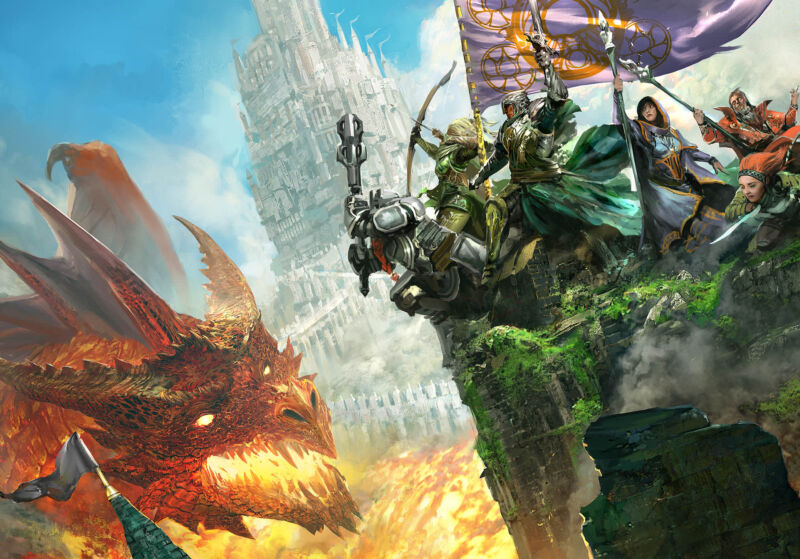D&D maker retreats from makes an attempt to replace longstanding “open” license
[ad_1]

Dungeons & Dragons (D&D) proprietor Wizards of the Coast (WotC) has halted its makes an attempt to replace the longstanding Open Gaming License (OGL) that has dictated the authorized use of the sport’s guidelines for many years. The transfer comes after weeks of controversy and belated makes an attempt to partially cut back leaked plans for an OGL replace.
The unique OGL 1.0a, first launched within the early ’00s, will now “stay untouched” WotC introduced in a tweet Friday. What’s extra, all the D&D Techniques Reference Doc (SRD)—which additionally consists of inventive content material like lessons, spells, and monsters trademarked and copyrighted by WotC—is now obtainable below a Artistic Commons Attribution 4.0 Worldwide License, which means it is free to make use of so long as correct credit score is given.
WotC’s full retreat on this licensing battle comes as WotC says survey suggestions on the newest draft replace to the license was “in such excessive quantity and its route is so plain,” that the corporate felt it needed to act instantly, as Government Producer Kyle Brink wrote on the D&D Past weblog.
That decisive response consists of an awesome majority of greater than 15,000 survey respondents who mentioned:
- They did not need to publish RPG content material below the proposed OGL 1.2 (88 %)
- The brand new license would drive them to vary part of their enterprise (90 %)
- They didn’t need the unique OGL deauthorized (89 %) and/or
- They weren’t proud of WotC’s drafted coverage of digital tabletop content material (86 %)
Past that, 62 % of respondents mentioned they needed extra content material from the SRD included below a Artistic Commons license (above and past the core guidelines that have been so lined as of final week). Now all the SRD is below a Artistic Commons license that, Brink identified, is “irrevocable in a method that does not require you to take our phrase for it.” Selecting such a license is like going via “a one-way door,” he added. “There is not any going again.”
Content material creators will now be capable to select to make use of the unique OGL or the brand new Artistic Commons license as the premise for his or her D&D-related content material going ahead, Brink writes. And the SRD being below a brand new license implies that there isn’t any longer a necessity for a particular coverage on digital tabletop content material; “with this new strategy, we’re setting that apart and counting in your decisions to outline the way forward for play,” Brink writes.
“Thanks in your continued dedication and love for Dungeons & Dragons,” WotC tweeted from the D&D Past account. “We’re sorry for the ache we’ve induced to the neighborhood. We sit up for constructing what comes subsequent with our gamers and creators.”
[ad_2]
No Comment! Be the first one.